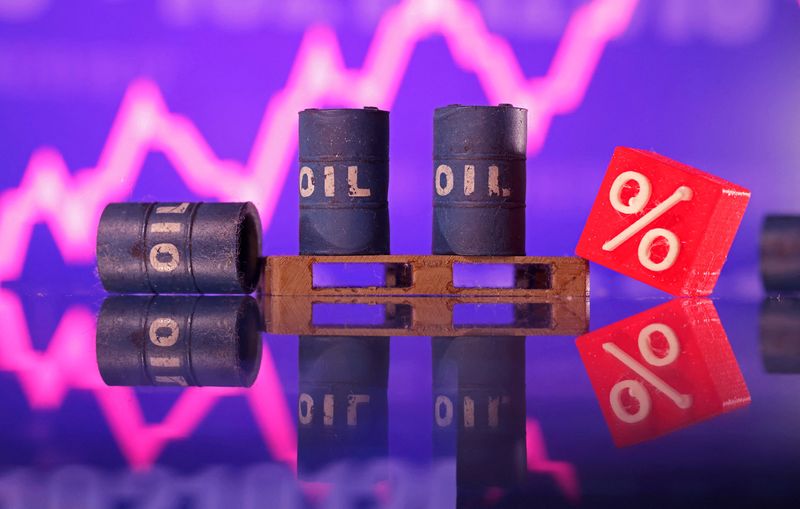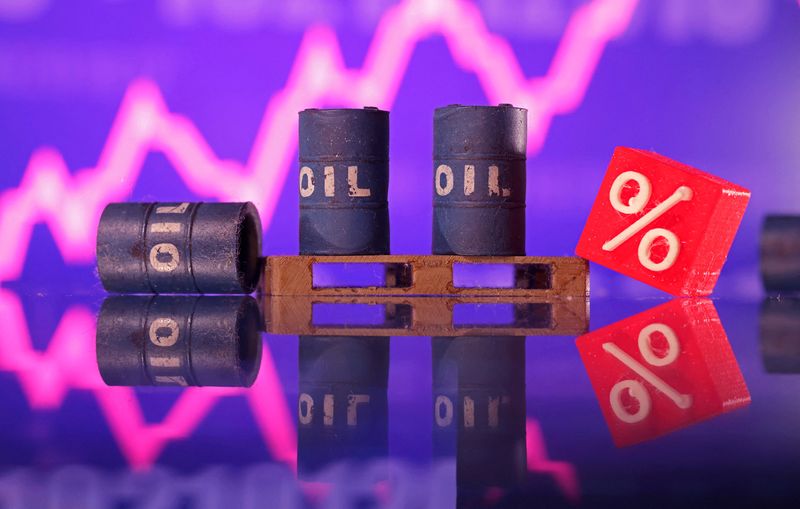
By Nicole Jao
NEW YORK (Reuters) – Oil prices slumped over 2% on Wednesday as worries over supply disruptions in Libya eased and demand concerns continued despite China’s latest stimulus plans.
Still, falling crude inventories in the United States and rising tensions in the Middle East provided some support.
Brent crude futures were down $1.78, or 2.37%, at $73.39 a barrel at 1:58 p.m. EDT (1758 GMT). U.S. West Texas Intermediate crude was down $1.91, or 2.67%, at $69.65 per barrel.
Libya’s factions signed an agreement on the process for appointing central bank governor, an initial step to resolve the dispute over control of the central bank and oil revenue that has slashed Libya’s oil output and exports.
“The possibility of Libyan barrels coming back on board is the main reason why the markets are lower,” said Bob Yawger, director of energy futures at Mizuho bank. “It would not be unrealistic to see prices pull back $5 once this mess unwinds.”
Despite a slew of monetary support measures announced by China’s central bank on Tuesday, the boldest since the pandemic, analysts warned that more fiscal help was needed to boost activity in the world’s largest crude importer.
“Concerns lingered that more fiscal support would be needed to boost confidence in the Chinese economy. This uncertainty raised doubts about sustained demand growth, weighing on crude prices,” said George Khoury, global head of education and research at CFI Financial Group.
Oil prices rose by about 1.7% on Tuesday after China announced sweeping interest rate cuts and more funding.
Meanwhile, crude inventories in the U.S. fell by 4.5 million barrels to 413 million barrels in the week ended Sept. 20, the Energy Information Administration said, compared with analysts’ expectations in a Reuters poll for a 1.4 million-barrel draw. Gasoline and distillate inventories also declined last week.
“The trend of falling supplies is getting too big to ignore. We hear how bad demand can be and have mixed signals,” said Phil Flynn, an analyst with Price Futures Group. “The weakness of demand doesn’t fit with this falling inventory situation,” he added.
The intensifying conflict between Iran-backed Hezbollah in Lebanon and Israel also supported crude prices, with cross-border rockets launched by both sides increasing fears of a wider conflict.

Although Iran’s leadership has shown restraint, an attack is probably on the cards in order to save face, but without enraging its European allies and disrupting the main oil trade routes, said Achilleas Georgolopoulos, investment analyst at brokerage XM.
Meanwhile, a hurricane threatening the U.S. Gulf Coast has changed course towards Florida and away from oil and gas-producing areas near Texas, Louisiana and Mississippi.
This post is originally published on INVESTING.



